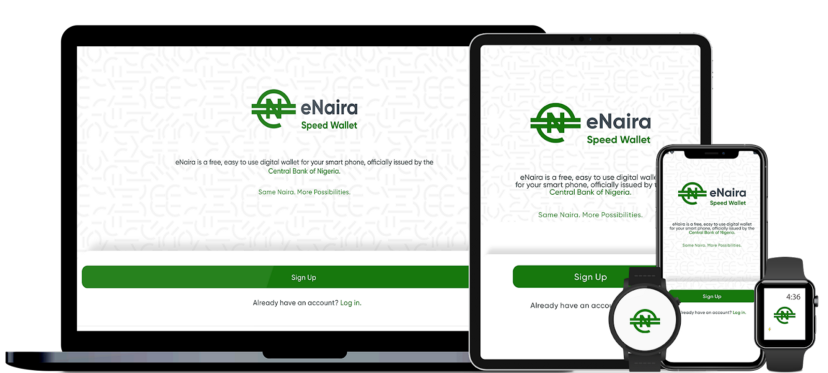
The Central Bank of Nigeria announced the relaunch of its CBDC, eNaira, in an effort to increase its use which is low now according to numbers.
Nigeria became the first country in Africa to commence with the use of Central Bank Digital Currency (CBDC), dubbed eNaira, in October 2021 — amid the nation’s currency freefall — to promote financial involvement, facilitate direct welfare outlays to nationals, and present faster, more affordable, and robust payment methods.
Despite this, the eNaira has not been widely accepted by the majority of Nigerians, even though the country boasts of a considerable percentage of citizens utilizing digital currencies.
Up to now, eNaira App had around 840,000 downloads, 200,000 consumer wallets, and 3,000 merchant wallets. These users have made 200,000 transactions totaling 4 billion nairas ($9.7 million). This translates to about one transaction per active wallet, which proves that Nigerians aren’t using their digital wallets for day-to-day transactions. Considering the number of crypto enthusiasts in the nation, the uptake was incredibly low.
The lack of widespread acceptance is likely caused by either a lack of understanding of the eNaira’s intrinsic advantages over other payment systems or by people’s general resistance to change.
However, the CBN’s plan to relaunch the eNaira is an effort to increase the adoption of the CBDC which raises hopes and gives comfort. By the introduction of ‘Unstructured Supplementary Service Data’ (USSD) code, the CBN has taken measures to make the eNaira accessible to all phone users, making it available to a much larger range of Nigerians.
Kingsley Obiora, Deputy Governor of the Central Bank of Nigeria, said this at the virtual IMF African Department Speakers Series on Friday, August 12, 2022. According to Obiora, the development of the USSD code was proposed to further commercial involvement in the nation and guarantee that those not owning smartphones could still carry out activities on the eNaira platform.
Data shows that there are 170 million active mobile subscriptions in Nigeria, but barely 10 to 20 percent of people currently own smartphones. The majority of mobile users continue to use handsets with the most basic features for calling and texting. Now, more than 100 million people who previously couldn’t use the payment method will now have access to it via USSD.
Additionally, the Central Bank of Nigeria (CBN) and the Africa Fintech Foundry (AFF) are cooperating to back ten start-ups to broaden the acceptance of the eNaira currency in Nigeria.
The AFF’s head, Mr. Daniel Awe, last week announced this to the News Agency of Nigeria (NAN) in Lagos State. He maintained that they are collaborating with the Central Bank to provide innovations and find solutions to issues that people face in the real world so that they can appreciate the value of the eNaira.
As a result, Awe said the AFF and the CBN collaborated to boost the adoption of e-Naira through a hackathon. He claimed that 5,000 people from the finance industry submitted applications for the hackathon, and the top 10 would receive financing to expand the use of eNaira in the West African country.
He further said:
“By the time we get to the maturity level of eNaira, it becomes cheaper, faster, and more efficient and you can break more boundaries, you can do things that are not possible today based on the fiat currency which is the normal Naira which you can spend on your mobile phones, internet banking among other existing channels.”
For instance, a user doesn’t even have to go through the banking system to transfer funds to a party anywhere in the world — they may do it right away on their mobile phone. He believes that when they develop successful companies around their innovations, jobs would be created and the usage of the eNaira would rise.
We will continue to observe how these measures will affect the adoption of eNaira.
